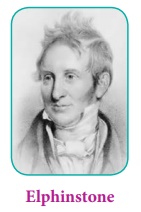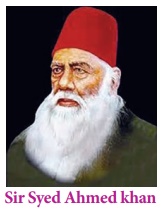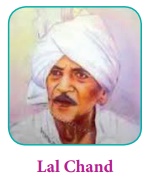Communalism in Nationalist Politics | History - Origin and Growth of Communalism in British India | 12th History : Chapter 6 : Communalism in Nationalist Politics
Chapter: 12th History : Chapter 6 : Communalism in Nationalist Politics
Origin and Growth of Communalism in British India
Origin and Growth of Communalism in British India
(a) Hindu Revivalism
Some of
the early nationalists believed that nationalism could be built only on a Hindu
foundation. As pointed out by Sarvepalli Gopal, Hindu, revivalism found its
voice in politics through the Arya Samaj, founded in 1875, with its assertion
of superior qualities of Hinduism. Besant identified herself with Hindu
nationalists and expressed her ideas as follows: ‘The Indian work is first of all
the revival, strengthening and uplifting of ancient religions. This has brought
with it a new self-respect, a pride in the past, a belief in the future and as
an inevitable result, a great wave of patriotic life, the beginning of the
rebuilding of a nation.’
(b) Rise of Muslims Consciousness
Islam on
the other hand, to quote Sarvepalli Gopal again, was securing its articulation
through the Aligarh movement. The British, by building the Aligarh college and
backing Syed Ahmed Khan, had assisted the birth of a Muslim national party and
Muslim political ideology. The Wahabis wanted to take Islam to its pristine
purity and to end the superstition which according to them had sapped its
vitality. From the Wahabis to the Khilafatists, grassroots activism played a
significant role in the politicization of Muslims.
Muslim
consciousness developed due to other reasons as well. The Bengal government’s
order in the 1870s to replace Urdu by Hindi, and the Perso- Arabic script by
Nagri script in the courts and offices created apprehension in the minds of the
Muslim professional group.
(c) Divide and Rule Policy of British
The object of the British was to check the development of a
composite Indian identity, and to forestall attempts at consolidation and
unification of Indians. The British imperialism followed the policy of Divide
and Rule. Bombay Governor Elphinstone wrote, ‘Divide et Impera was the
old Roman motto and it should be
ours.’ The British government lent legitimacy and prestige to communal ideology
and politics despite the governance challenge that communal riots posed.

(d) Moves of the Congress
Though
many congress men had involvement in Hindu organisations like Arya Samaj, the
Congress leadership was secular. When there was an attempt by some Congressmen
to pass a resolution in the third session of the Indian National Congress,
making cow killing a penal offence, the Congress leadership refused to
entertain it. The Congress subsequently resolved that if any resolution
affecting a particular class or community was objected to by the delegates
representing that community, even though they were in minority, it would not be
considered by the Congress.
(e) Role of Syed Ahmed Khan
Sir Syed Ahmed Khan, the founder of
Aligarh movement was initially supportive of the Congress. Soon he was
converted to the thinking that in a country governed by Hindus, Muslims would
be helpless, as they
would be in a minority. However, there were Muslim leaders like Badruddin
Tyabji, Rahmatullah Sayani in Mumbai, Nawab Syed Mohammed Bahadur in Chennai and
A. Rasul in Bengal who supported the Congress. But the majority of Muslims in
north India toed the line of Syed Ahmed Khan, and preferred to support the
British. The introduction of representative institutions and of open
competition to government posts gave rise to apprehensions amongst Muslims and
prompted Syed Ahmed Khan and his followers to work for close collaboration with
the Government. By collaborating with the Government he hoped to secure for his
community a bigger share than otherwise would be due according to the
principles of number or merit.

The foundation of the Indian National Congress in 1885 was an attempt to narrow the Hindu-Muslim divide and place the genuine grievances of all the communities in the country before the British. But Sir Syed Ahmed Khan and other Muslim leaders like Syed Ameer Ali, the first Indian to find a place in London Privy Council, projected the Congress as a representative body of only the Hindus. Of the seventy-two delegates attending the first session of the Congress only two were Muslims. Muslim leaders opposed the Congress tooth and nail on the plea that Muslims’ participation in it would create an unfavourable reaction among the rulers against their community.
(f) Communalism in Local Body Elections
Democratic
politics had the unintended effect of fostering communal tendencies. Local
administrative bodies in the 1880s provided the scope for pursuing communal
politics. Municipal councillors acquired vast powers of patronage which were
used to build-up one’s political base. Hindus wresting the control of municipal
boards from the Muslims and vice-versa led to communalisation of local
politics.

Lal
Chand, the principal spokesperson of the Punjab Hindu Sabha and later the
leader of Arya Samaj, highlighted the extent to which some Municipalities were
organised on communal lines: ‘The members of the Committee arrange themselves
in two rows, around the presidential chair. On the left are seated the representatives
of the banner of Islam and on the right the descendants of old Rishis of
Aryavarta. By this arrangement the members are constantly reminded that they
are not simply Municipal Councillors, but they are as Muhammedans versus Hindus
and vice-versa....’.
(g) Weak-kneed Policy of the Congress
At the dawn of twentieth century, during the Swadeshi Movement in Bengal (1905–06), Muslim supporters of the Swadeshi movement were condemned as “Congress touts.” The silence of the Congress and its refusal to deal with such elements frontally not only provided stimulus to communal politics but also demoralized and discouraged the nationalist Muslims.
Hindu and Muslim Communalism were products of middle class
infighting utterly divorced from the consciousness of the Hindu and Muslim
masses. —Jawaharlal Nehru
The
situation took a turn for the worst in the first decade of the twentieth
century when political radicalism went hand in hand with religious
conservatism. Tilak, Aurobindo Gosh and Lala Lajpat Rai aroused anti-colonial
consciousness by using religious symbols, festivals and platforms. The most
aggravating factor was Tilak’s effort to mobilise Hindus through the Ganapati
festival. Lal Chand spared no efforts to condemn the Indian National Congress
of pursuing a policy of appeasement towards Muslims.
Related Topics